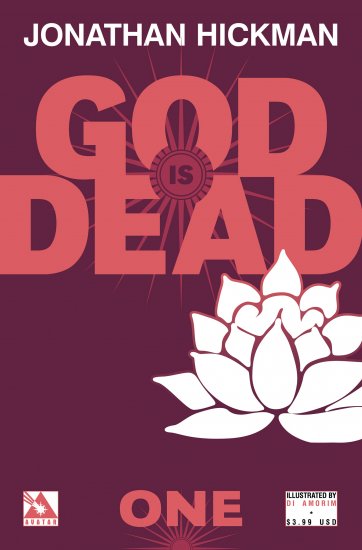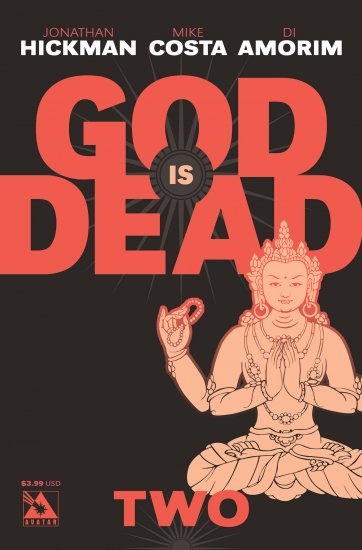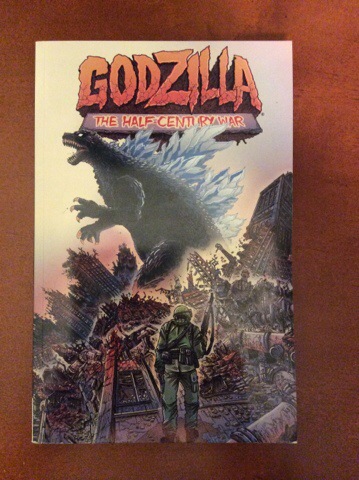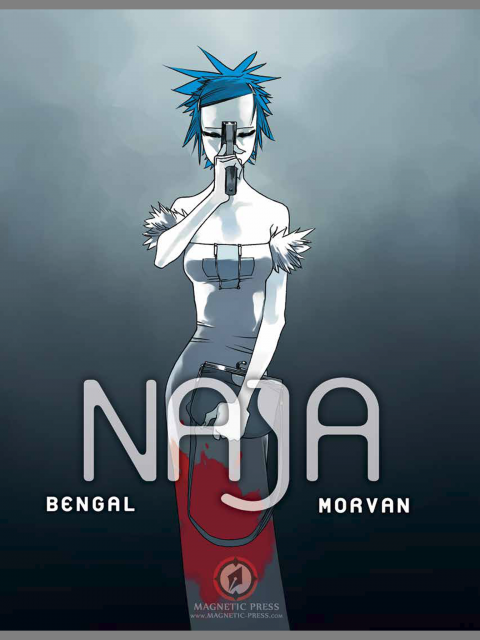
“I contend we are both atheists, I just believe in one less god than you do. When you understand why you dismiss all the other possible gods, you will understand why I dismiss yours.”
—Stephen F Roberts
In the first 2 issues of Jonathan Hickman’s GOD IS DEAD, powerful beings with familiar faces show up around the world and begin carving out territory for themselves. Zeus, Ra, Odin, Tlaloc and Shiva arrive in a flurry of destruction with their accompanying pantheons in all their splendor, and make demands of the humans they find on earth. What do they want earth for? It’s not entirely clear. Nor are they metaphysics of the world in which the story is set, which is kind of the central mystery and therefore half the point. Are they gods? What is a god?
Jonathan Hickman currently has a few successful series at Image Comics, starting with THE MANHATTAN PROJECTS, a quirky series set in an alternate universe in which the titular project was just the tip of an iceberg of crazy science experiments. EAST OF WEST is a refreshing worldbuilding exercise set in a fantastical apocalyptic future (a la Stephen King’s Dark Tower series) that turns out to have a deeply human story at its heart. I haven’t read his SECRET title, but I’ve read good things.
GOD IS DEAD seems like another perfect fit for Image, so I’m wondering why it’s being published by Avatar, best known for its ultraviolent horror titles such as NEONOMICON and CROSSED. There are hints of gore and violence in the first two issues of GOD, but nothing that Image would shy away from, so I wonder if Hickman has more blood in store.
The book spends half its time in the company of the gods and their mischief and half in the company of humans as they react in a handful of ways to the invasion (other than being mercilessly slaughtered). It seems that most of humanity become mindless sycophants for their recently-returned regional deity. On the other end of the spectrum are the remnants of the U.S. military, whose gut reaction is to bomb the shit out of anything more-than-human. And somewhere in the middle is a group of scientists and thinkers who gather in a sewer in what was once Washington, D.C., with the goal of thinking their way out of this mess somehow.
These reactions are philosophically revealing. To the brutish military men, this invasion might as well be commies or space aliens. The only option is fighting back in an act of pure defiance.

To the majority of humanity, the simplicity of worship and sacrifice to earn godly favor is preferable to a painful freedom. To some it seems almost paradise.
To the “enlightened few,” the problem is an academic one. These invasive beings “exist in the world therefore they must be of the world,” and that means weaknesses. To them, the metaphysics of these invaders do not raise a question of spirituality, but simply of answering previously unasked questions. So are these beings made of atoms and therefore “real?” Or are they made of more ethereal stuff? And is that merely another kind of “real” that we just don’t have the rulebook for?
Hickman chose the book’s title aptly. In the philosophical context, “God is dead” is a reference to the fact that the modern mind is incapable of considering anything transcendental, and therefore God is, for all practical purposes, dead. Look up the death of God movement. Especially the part about Christian atheism. It’s fascinating. But the reference also raises the question of why Hickman hasn’t included Abrahamic deities. (Or other, less well-known religions, for that matter.) Jesus is name-dropped, but doesn’t appear. Perhaps Hickman has something bigger in mind for the Big Guy.
Despite the title’s name-dropping premise and interesting philosophical undertones, there’s a real lack of on-the-ground character writing going on, in harsh contrast to Hickman’s other ongoing titles. It’s hard to even say who the main character is by the end of issue 2. With a cover price just shy of $4, I am a little disappointed that more ground isn’t covered in each issue, especially since Avatar is producing damn near as many variant covers as they are interior pages.
I’m interested in the concept here, although based on the first pair of issues I think I’d rather be reading EAST OF WEST.



